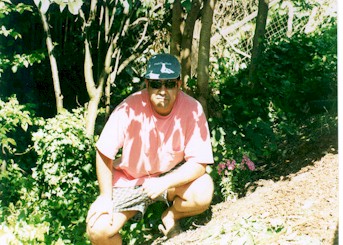Alamout

About 20 years ago, Amin Maalouf, Lebanon's answer to Umberto Eco, wrote a curious novel titled Samarkand, which can be described as historical fiction set in the Khorasan and Mawarannahr of the 11th-century.
Reviewing the book in the Independent, Ahmed Rashid (of Taliban fame) remarked that Maalouf had "written an extraordinary book, describing the lives and times of people who have never appeared in fiction before and are unlikely to do so again."
The major characters are (adapted from an anonymous author, posting on soc.culture.iran):
The Grand Vizier for the Seljuk dynasty, Nizam al-Mulk, representing a very intelligent and intricate officialdom that will try to lure, in war as well as in peace, every intellectual and religious figure to strengthen the power of the central state;
Hasan Sabbah, founder of the Assassins - Hashashines, otherwise known as the Ismailite order;
and Omar Khayyam, poet, astronomer, and mathematician, an intellectual that will "flirt" with both men, but never come to terms with either of them.
The Nizam, keen to strengthen his authority, will establish a secret police, will try to lure Omar to take the position of chief Intelligence officer, the Sahib Khabar.
Omar, finding no rational reason for the politics of death and all that revolves around it, will introduce to Nizam a friend, a religious student, a Talib 'Ilm, he met in a motel, on his way to Ispahan. The friend, Hasan Sabbah, becomes chief of Nizam's Mukhabarat, intelligence services.
Hasan is a member of the secret emissaries trained in the Fatimid courts in Cairo and Alexandria to undermine a waning Abbasid authority, only held in power by their mentors in Persia, the Seljuks. Hasan will establish the most formidable - in terms of organization - secret society that literally terrorized the East in the middle ages. The "old man of the mountains", as the Crusaders later dubbed him, will establish his fortress in Alamout, North West of Iran, and work on undermining his ex-mentor's, the Ata, father, -- Nizam al-Mulk - authority. The Assassins - from Assas, foundation, and not Hashish as commonly known - were Nizam's bete noire.
Omar, the disenchanted intellectual, will plunge into his own soul searching, and the world of his beloved Jahan, with his cup and his Rubaiyat, and will play the role of a pacifist in a Jahan - world - plugged by the politics of the sword and the logic of death. Omar will never forgive himself for introducing Hasan to Nizam.
Here is a parable about these three characters:
Three friends were on a promenade in the high planes of Persia. Suddenly, a panther, with all the ferocity of the world in it, appears to them.
The panther observed the three men for some time then ran to them. The first was the oldest, the richest, the most powerful. He cried,' I am the master of these dwellings, I will never allow this beast to wreck havoc these lands which belong to me.' He had two hunting dogs, he let them attack the panther, they could only bite it, and it as such became more vigorous; it consumed them, attacked their master and ripped his entrails out. Such was the end of Nizam al-Mulk.
The second said, 'I am a man of knowledge, everyone honors me and respects me, why should I let my fate be decided between dogs and panther?' He turned his back and ran away, least concerned with the outcome of the combat. He had since erred from cave to cave, and hut to hut, convinced that the beast was constantly tracing his steps. Such was the fate of Omar Khayyam.
The third was a man of belief. He advanced towards the panther, and with open hands, a dominating glance and an eloquent mouth. 'Ahlan wa Sahlan, You are most welcome in these lands, he said. My companions were richer than I, you had them deprived, they were the proudest, you disgraced them.' The beast listened, seduced... He knew how to approach it. Since then, no panther could come near, men took their distance.
When the times of hardship came to pass, none could stop his course, none could run away from him, some were able to take advantage (of this chaos). Better than none, Hasan Ben Sabbah knew how to domesticate the ferocity of the world. All around him he sowed fear to end up in his reduced Alamout fort, a miniscule space of sorrow.


0 Comments:
Post a Comment
<< Home